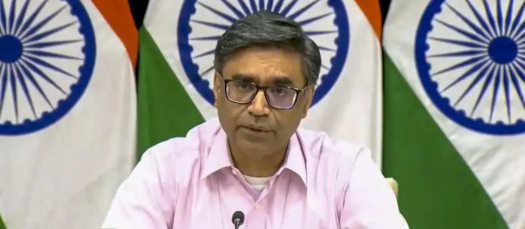Global media Update tech Update & Automobile Life Style & Entertainment

The terror attack, which occurred on April 22 in the Baisaran Valley, Pahalgam (Jammu and Kashmir), was executed by militants affiliated with The Resistance Front (TRF), an offshoot of Lashkar-e-Taiba, a Pakistan-based terror outfit. The incident has triggered widespread national outrage and international condemnation.

 Amazon: दुनिया का सबसे बड़ा ऑनलाइन शॉपिंग प्लेटफॉर्म, जहां आपको बेहतरीन डील्स और विश्वसनीय प्रोडक्ट्स मिलते
Amazon: दुनिया का सबसे बड़ा ऑनलाइन शॉपिंग प्लेटफॉर्म, जहां आपको बेहतरीन डील्स और विश्वसनीय प्रोडक्ट्स मिलते
In a strategic response, the CCS announced five major policy decisions to hold Pakistan accountable and tighten internal security mechanisms:
The targeted terrorist shooting took place around 1:00 PM IST on April 22, 2025, as tourists enjoyed the scenic Baisaran meadow in Pahalgam. The attackers indiscriminately opened fire, killing tourists from Karnataka, Gujarat, Odisha, Madhya Pradesh, Maharashtra, Tamil Nadu, and Uttar Pradesh, along with two foreign nationals – one each from Nepal and the UAE.
The TRF claimed responsibility, citing opposition to demographic changes in Jammu and Kashmir. Intelligence reports suggest the involvement of five militants, including three Pakistani nationals and two local operatives.
The National Investigation Agency (NIA) has taken charge of the investigation. Security agencies have released sketches of three suspects – Asif Fauji, Suleman Shah, and Abu Talha. The mastermind is believed to be Saifullah Kasuri alias Khalid, a senior Lashkar commander operating from Pakistan.
A massive manhunt is underway in Jammu and Kashmir, with intensive combing operations, drone surveillance, and heightened troop deployment across sensitive regions. The attack is being seen as a well-orchestrated strike with cross-border logistical support.
The international community has unanimously condemned the act of terror. The United States, Russia, Italy, and other global powers have expressed grief over the incident and extended condolences to the bereaved families.
US Secretary of State and Russian President Vladimir Putin have both emphasized the need for global unity in counterterrorism efforts, especially in South Asia.
The opposition has questioned the government’s earlier claims of normalcy in Kashmir, and political leaders have demanded more stringent anti-terror measures. On the ground, candle marches, protest rallies, and public demonstrations have erupted in cities like Patna, Delhi, and Bengaluru, expressing solidarity with the victims and demanding justice.
Prominent voices from civil society, religious organizations, and defense analysts have reiterated the need for a comprehensive anti-terror doctrine backed by international diplomatic pressure on Pakistan.
The Pahalgam terror attack is being seen as a defining moment in India’s counter-terrorism policy. With the Indus Treaty suspension, visa revocations, and diplomatic downgrading, India has made it clear that cross-border terrorism will be met with firm and resolute action. As the nation mourns the tragic loss of innocent lives, the focus now shifts to securing the homeland and eliminating terror networks at their roots.
Auto Amazon Links: No products found.